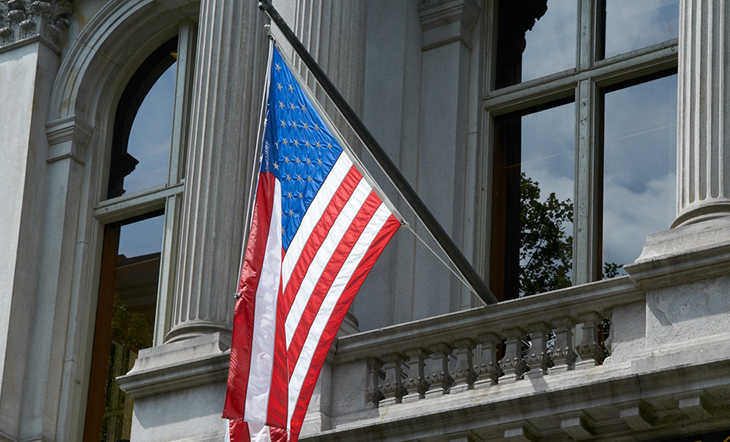Every U.S. presidential election generates noise over potential changes to the tax code, which in turn contributes to turbulence in the municipal marketplace. We believe this year is likely to be no different, with increased investor focus on candidates’ tax proposals in the days before the election. Below, we take a quick look at the positions of the major candidates that, if implemented, could impact municipal bonds. Even after Election Day, these views are likely to inform the debates around taxation that will take place in the year ahead.
Tax Proposals Affecting Municipal Bonds
| Clinton | Trump | Potential Impact on Munis | |
|---|---|---|---|
| Ordinary Income Tax | Enact “Buffett Rule,” a 30% minimum tax on taxpayers with AGI over $1 million; 4% surcharge on income over $5 million; keep top tax bracket at 39.6% | Reduce top bracket to 33%; cut number of brackets to 3 (12%, 25% and 33%) | Advantage Clinton. Higher taxes generally mean greater after-tax appeal for munis. |
| Alternative Minimum Tax | No change | Repeal | Limited. Trump’s plan favors certain “private activity” bonds that are not currently exempt from the AMT. |
| Exemptions, Deductions & Credits | Limit value of most deductions to 28% | Cap itemized deductions at $100,000 for single filers and $200,000 for couples. | Both plans could be negative if applied to munis. |
| Corporate Income Tax | No change | Reduce top tax rate from 35% to 15% | Trump's plan could reduce demand from banks, insurance cos. and other U.S. institutions. |
Source: Neuberger Berman.
New Politics, Same Old Story?
Despite the supposed “shifting” profile of the American electorate, tax-wise the candidates are largely falling along traditional party lines.
Democrat Hillary Clinton wants to raise taxes on top earners; she favors the “Buffett Rule,” which requires that households earning $1 million or more pay at least a 30% tax rate; and she wants a 4.5% surcharge on income over $5 million. Otherwise, rates would remain unchanged, with a top tax bracket of 39.6%. On its face, that’s all quite positive for municipals, whose tax-effective yields generally increase with tax rates.
Still, the plan is not a slam dunk—Clinton favors capping the value of tax deductions at 28% of income, which could curb demand for munis. But chances of passing such a provision are low unless the Democrats sweep Congress and the presidency—an unlikely scenario, in our view.
Donald Trump has taken a familiar Republican approach, seeking to lower and simplify personal income tax rates.
He would cut the current top bracket of 39.6% to 33%, and reduce the number of brackets to three. This is actually a retreat from his earlier proposal, which called for a 25% top rate, but still could make munis less attractive. His call for $100,000 individual cap in itemized deductions ($200,000 for couples) could also have a negative impact, while his proposal to cut the corporate tax rate could reduce demand for municipal bonds from certain institutions. One limited positive is his call to eliminate the alternative minimum tax. Although most municipal bonds are not subject to the AMT, it does apply to a significant subset issued for “private” purposes such as airports, stadiums and housing, which could experience increased demand.
All this comes with a caveat that the reality TV mainstay has modified his positions repeatedly, making it hard to pin down what a Trump administration would actually look like.
More of the Same? Muni Valuations Could Help
The U.S. tax code is widely disparaged—as large, unwieldy and growing in complication by the day. So change is needed. However, the deep differences in ideology have thus far limited prospects for reform.
In a hotly contested race, Hillary Clinton is generally favored to win the White House and there appears to be a better-than-even chance that Democrats could take the Senate, while Republicans seem likely to hold onto their House majority. Barring a wholesale sweep (in either direction), we anticipate only modest changes, if any, to the tax code in the coming year.
The good news is that municipal bond valuations remain relatively modest. Ten-year municipals are currently yielding more than 90% of yields on Treasuries with equivalent maturities compared to a pre-2008 crisis average of 82%.1 All things being equal, this could provide a healthy buffer in the event of political turbulence in the coming months.
Infrastructure Improvement: Something to Agree On?
It’s no secret that the nation’s infrastructure is crumbling. Both presidential candidates want to do something about it, which could provide new opportunities for municipal investors. Specifically, Hillary Clinton seems likely to favor a revival of the Build America Bonds program, which in 2009 – 2010 sponsored the issuance of $181 billion in subsidized taxable municipals. We think there would be heavy demand for such bonds, particularly among non-U.S. investors who are increasingly looking for yield. Donald Trump, meanwhile, has noted that current low rates make this an ideal time to borrow for infrastructure needs. Local voters have been particularly opposed to debt-funded projects, which, in our view, is part of the current problem. With a little push from one of these politicians, perhaps the climate could improve.






